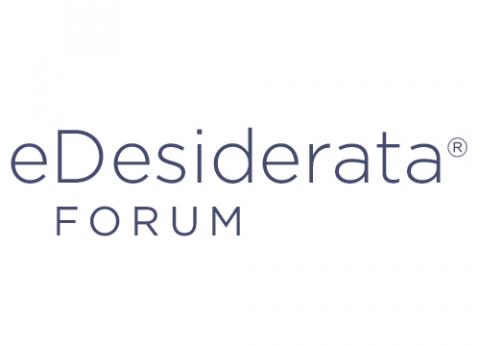Event Logistics
While much of the conversation about Open Access to date has been around scholarly and scientific journals, primary source materials and data for humanities and social science research are increasingly moving behind paywalls. The 2018 eDesiderata Forum—organized jointly by CRL and the Northeast Research Libraries Consortium (NERL)—will examine existing and emerging models for Open Access to news, archives, government information, and other primary data. Presenters will suggest how U.S. and Canadian libraries might leverage their collective influence to minimize or eliminate barriers to Open Access and achieve greater returns on their investment in digital resources.
Session 1. (12:00 noon–1:25 p.m. CT) Existing Open Access and Cooperative Investment Models
A variety of models for sustaining Open Access digital resources exist and many of those are now evolving. Presenters will discuss the pros, cons, and possibilities of three models promoted by community-driven initiatives:
Infrastructure for social science research: The ICPSR model and its future Libby Hemphill, Director, Resource Center for Minority Data and Associate Professor, University of Michigan School of Information.
- The Inter-university Consortium for Political and Social Research (ICPSR) maintains a vast archive of data on public opinion, crime, education, terrorism, and other fields of public interest. Governed by member universities and research institutes, ICPSR offers a combination of open data and member-only data, educational programs, and other services. Dr. Hemphill will discuss the current ICPSR funding model, and potential benefits that new investment by the academic community might create.
Moving from grant to membership models: the Biodiversity Heritage Library and the Medical Heritage Library Constance Rinaldo, Librarian, Ernst Mayr Library of the Museum of Comparative Zoology, Harvard University, and Melissa Grafe, John R. Bumstead Librarian for Medical History, Cushing/Whitney Medical Library, Yale University
- Grant-funded efforts seeking to sustain activities through membership or sponsorship models.
Supporting Open Access at the grassroots: USAIN and Project Ceres Michael Cook, Head of Collection Development & Digital Collections, Albert R. Mann Library, Cornell University, and Amy Paster, Head, Life Sciences Library, Pennsylvania State University
- A community of interest builds and sustains Open Access resources through grassroots action and cooperative investment.
Session 2. (1:30–2:55 p.m. CT) Emerging and Potential New Models for Open Access
Experimentation in the publishing world, and in the world of political activism and investigative journalism, have produced some promising new models for sustainable, paywall-free access to data and digital content. How can libraries, working together, support and encourage those efforts?
The changing Reveal Digital model Peggy Glahn, Program Director, Reveal Digital.
- The recipient of significant library investment to create OA collections, Reveal is now evolving to a new business model after the demise of its parent company.
Leveraging OA publishing infrastructure: JSTOR's Open Access initiatives Presenter: Deirdre Ryan, Director of JSTOR Forum & Primary Sources
- How will JSTOR leverage its open access initiatives for primary sources?
The growing privatization of public domain collections and public interest data, and some emerging alternatives Presenter: Bernard Reilly, President, CRL.
- When commercial vendors "productize" 19th and early 20th century materials from libraries and archives and government information, the public domain is diminished. Strategic, proactive measures by research libraries can help arrest that trend.
Session 3. (3:00–3:30 p.m. CT) Possibilities for Collective Action
A panel of experts will discuss potential strategies for cooperative investment in Open Access primary sources, and how those cooperative efforts could best be structured to benefit the academy and digital scholarship.
- Lindsay Cronk, Head of Collection Strategies, University of Rochester Libraries
- Janet Hulm, Assistant Dean for Collections & Digitization Strategies, Ohio University Libraries
- Elizabeth Kirk, Associate University Librarian for Scholarly Resources, Harvard Library
CRL's annual eDesiderata Forum brings expert knowledge and insight to bear on the challenges of acquisition, licensing and enabling access to databases, datasets, and data services for scholarly research. The forums explore community interest in commercial and open access data sources, illuminate market practices and economics, and identify priorities for CRL analysis and action on behalf of its member libraries.
The 2018 eDesiderata Forum is open to librarians, staff, and faculty at CRL and NERL member institutions. Registrants may join the sessions at any time during the Forum. To encourage real-time participation and discussion, recordings will not be available for later access. Speakers' slides and a summary report will be posted after the event.
